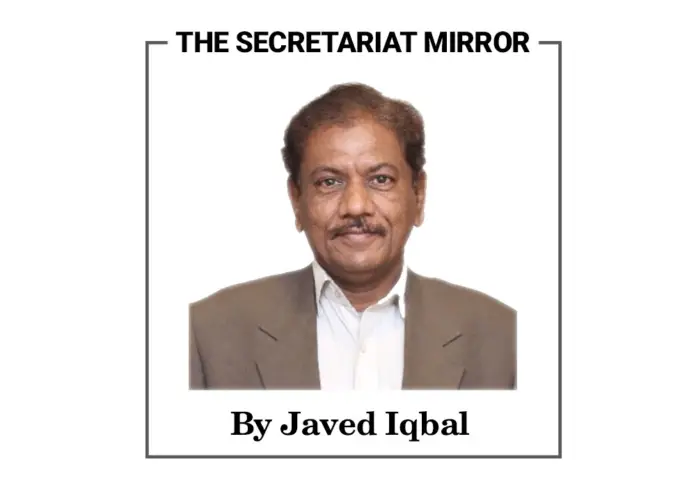Electricity theft in Pakistan is a rampant and growing issue, costing the country up to Rs 380 billion per year. Its impact to the consumers will rise up to rupees 520 billion annually. Federal Secretary Power Division Rashid Mahmood Langrial told National Assembly committee. He further said that if load management was not done the financial burden on consumers would be Rs 540 billion per year. He confessed that not only the DISCO officers were involved in electricity theft but ABC cables program had also been compromised. There is a plan to privatise billing and recovery in some DISCOs, the secretary said.
The secretary was not available to respond to queries on the ‘charge sheet’ he presented against his own division’s performance. Pakistan’s circular debt had reportedly spiked in 2022 to alarming Rs4,177 billion with debt of the energy sector rising Rs129 billion per year. The circular debt of the power sector had then Rs2,277 billion, while Pakistan State Oil’s (PSO) debt was Rs600 billion during last year. The debt of the gas sector reached Rs1,400 billion.
This grave issue is due to a number of factors, including flaws in the law, a lack of political will to address the issue, and political intervention that actually contributes to the destruction of infrastructure. One reason for electricity theft is the fact that there is no real punishment for doing so, said an officer. There are a number of laws on the books related to electricity theft, but they are rarely enforced due to many reasons. In addition, those who are caught stealing electricity often only end up paying a small fine, which does not serve as a deterrent.
Another reason for electricity theft is the lack of political will to address the issue. The government knows that it is losing billions of rupees each year due to electricity theft, but has not done enough to tackle the problem. This may be due to the fact that many powerful politicians and their voters are involved in this type of theft themselves. The unjust treaties with IPPs, criticized by many are a bone of contention. Finally, political intervention actually contributes to the destruction of energy sector infrastructure and makes it easier for people to steal electricity. For example, when politicians or their supporters demand new power projects or distribution lines without proper planning and consideration for maintenance, it creates an environment that allows for widespread electricity theft.
The government has tried various solutions to address this issue, but none have been successful so far. One option that has been floated is privatization of the distribution companies. This would create more competition and make it easier to catch offenders. However, it remains to be seen whether this will be effective in tackling the problem. Another solution that has been proposed is better policing of the sector. This would involve increasing the number of police officers who are dedicated to catching electricity thieves. However, given the situation, this would be a daunting task.
Former Secretary Power Division Irfan Ali when talked to say that it is primarily because of weak laws that electricity theft continues unabated in Pakistan. The law to deal with the menace of electricity theft is flawed and those caught indulging in this criminal activity are often let off easily by the authorities. During my time in office, Ali claimed, an ordinance was placed by the President of Pakistan removing flaw in law that ensured registration of FIRs by our officers. But, later proper legislation couldn’t be done which left the field open for thieves. He said during his tenure around 75,000 FIRs were registered against power thieves besides continued surveillance on violators.
He said that his division controlled theft in Sindh despite the government didn’t cooperate. He said that the use of hooks to steal electricity from the system in Sindh and KPK was common while in Punjab meter tampering to steal is in practice. He said that the Power Division encouraged smart metering in Lahore and Islamabad besides installation of ABC wires. He alleged that after he refused to surrender to unjust demand of the IMF to end subsidies, the then finance minister and principal secretary to PM managed to remove him unceremoniously despite they admitted success stories of my division.
The government must pass a strong law to deal with electricity theft removing FIR related lacunas and punish the criminals involved in this activity. Only then we see a significant decline in this crime, he recommended. “Privatization of strategic assets like DISCOs that too presently running in loss would not be easy” Ali feared. He claimed he had reduced circular debt from Rs45billion to Rs12 b per month. He said that he besides getting approval from planning division on ABC cables he had initiated talks with Asian Development Bank on smart meter installation to further control sophisticated electricity theft in Lahore and Islamabad after many criminals had managed to steal from ABC cables in KE as well. He feared that after subsidies are no more power theft would escalate.
Concluding, it can be suggested to have a meritocracy in place, where only the upright and most qualified officers are given positions of power in DISCOs. There should be no one in companies’ boards having personal or political interests. Rational and people friendly policies should continue rewarding the honest and breaking the corrupt-political nexus would be beneficial for the power sector. Otherwise, the multiple factors in the energy sector may multiply in the months to come when cash strapped, politically unstable Pakistan faces severe economic crunch.






